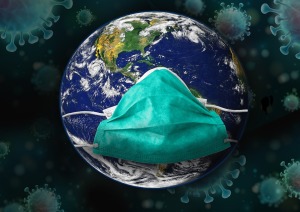In any tragedy or crisis, you will see many people standing out and stepping up to save lives and make the world a better place. These heroic individuals can range from leaders of nations to ordinary citizens who rise to the occasion to help others in need.
During this COVID-19 pandemic, here are some prominent examples of heroism that we’ve seen:
1. Healthcare worker heroes
The doctors, nurses, and healthcare staff on the frontline are doing a remarkable job of saving lives. Some of these medical personnel are exposing themselves to risk. This is the ultimate criterion of heroism: Self-sacrifice in the service of others.
2. Heroes who respect science
Understanding the science of viral outbreaks is crucial to getting us through this pandemic with as little loss of life as possible. Here are the heroes in this regard:
- The epidemiologists and medical scientists
- Those who respect epidemiologists and listen to their advice.
- Those who respect models of disease spread, social distancing, and quarantine.
- Those who listen to scientists’ warnings about preparedness for future disease outbreaks.
3. Heroes who bring much-needed supplies and equipment to hospitals
Suppliers, manufacturers, shippers, and drivers — these people are heroically giving us what we need to care for afflicted people.
A striking example of heroism of this type was shown by the New England Patriots football team, who use their team plane to deliver 1.2 million N95 masks to the US from China to help ease shortages. In addition, the Brooklyn Nets basketball team flew in much-needed ventilators and masks to New York.
A man in Detroit decided to use the $900 he’d been saving to buy gasoline for nurses working to save lives. If we can’t save lives personally, the heroic thing to do is to support the people who do risk themselves to save lives.
5 Heroes who lead by example
Good leaders lead by example. Leaders who wear a mask, who abide by same rules as everyone else, set a heroic example for us.
6. Helpers of the elderly and those with pre-existing conditions
People are heroes when they get groceries and supplies for the elderly or for shut-ins. Keeping in contact with quarantined and elderly people over Zoom or phone is also heroic.
7. Whistleblower heroes
The US Navy relieved the Captain Brett Crozier who sounded the alarm about an outbreak of COVID-19 aboard the USS Theodore Roosevelt.
Needing help to save his crew, Crozier sent a strongly worded letter to Navy leadership that detailed his concerns about the spread  of the virus on the ship. The letter leaked to the media, and Crozier was punished for doing the right thing.
of the virus on the ship. The letter leaked to the media, and Crozier was punished for doing the right thing.
Sailors cheered when Captain Crozier departed his ship, demonstrating that the average person understands heroism when they see it. It is supremely important and even heroic to recognize heroism when we see it.
There is no more courageous hero than a whistleblower.
8. Heroism turned upside-down: Heroes in the service industry
The pandemic means that heroism now available to everyone: food deliverers, truck drivers, grocery clerks, pharmicists — they’re all indispensable right now and they’re heroes. Franco and Zimbardo (2006) were right — everyday people, not the rich and famous, are society’s true heroes.
We’re heroes just by participating in keeping society functioning.
Doing nothing and staying home is heroic because we’re not contributing to the spread of the virus. Heroism is upside-down now, as typically heroes act. Now inaction can save lives.
9. Heroes who avoid the hoarding bias
Hoarding is a a type of OCD, caused by anxiety and depression. People have panicked and hoarded food, cleaning supplies, and toilet paper.
The solution: relaxation exercises, meditation, online counseling, and developing faith that things will get better.
We’re heroes if we don’t succumb to fear.
10. Heroes who comfort and encourage others
Please do what you can to reach out to offer comfort to people who are frightened and anxious during this quarantine. You can be a hero and save someone’s life just by the smallest of gestures, such as an encouraging text or call.
– – – –


